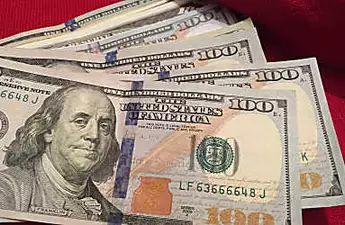
MEXICO CITY -
Mexico registered its highest annual inflation rate in more than 16 years in 2017, according to official data released Tuesday, piling pressure on policy makers to reign in prices.
The annual inflation rate was 6.77 percent at the end of December, driven by rising energy and food prices, said the national statistics institute.
That was the highest since May 2001, and closed out a turbulent year for Latin America's second-largest economy.
The news increased expectations that the central bank will raise interest rates yet again at its next monetary policy meeting on February 8.
It also stoked concern that high prices could become a hot-button issue in general elections to be held on July 1.
"Stubbornly high inflation could continue to fuel discontent and potentially affect the electoral campaigns," consulting firm Eurasia Group said in a note.
Mexico started 2017 with a double headache that never completely receded.
On one hand, newly-elected US President Donald Trump's threats to scrap the North American Free Trade Agreement (NAFTA) and make Mexico pay for a border wall caused the value of the peso to plummet.
On the other, a landmark energy reform that removed state subsidies for gasoline and diesel caused fuel prices to soar, triggering riots.
With the weak peso making imports more expensive and the 20-percent gasoline hike echoing through the economy, prices rose sharply -- defying the central bank's efforts to reign them in with five interest rate increases last year, up to 7.25 percent.
Inflation is well above the central bank's target of two to four percent, and is the top challenge facing the bank's new governor, Alejandro Diaz de Leon.
It could also prove troublesome for ruling party presidential candidate Jose Antonio Meade, the former finance minister who presided over the worst of the price increases.
Meade and the Institutional Revolutionary Party (PRI) currently trail radical leftist Andres Manuel Lopez Obrador in opinion polls.
The inflation issue has already dogged him on the campaign trail.
Last week he rejected accusations that he was "the father of the 'gasolinazo,'" the word Mexicans use to refer to the gas-price spike.
Analysts say upward pressure on prices should start to fade early this year, and predict inflation will recede as the gasoline increase drops out of the annual comparisons.




![[Gallery] Florida Sheriffs Find Lifeless Dog On The Side Of The Road. The Dog's Reaction Is Heartbreaking [Gallery] Florida Sheriffs Find Lifeless Dog On The Side Of The Road. The Dog's Reaction Is Heartbreaking](http://images.outbrain.com/transform/v2/eyJpdSI6IjY1NWJjMWJlNjYzMDhiNjNkMmYxZDliNmFiOTE4NWFjN2E0Yzk4NDFiMzZmYzUxMzU3ZTAyZTdjODc5ODFjMDciLCJ3IjoyMzAsImgiOjE1MCwiZCI6MS41LCJjcyI6MCwiZiI6MH0.webp)
No comments:
Post a Comment